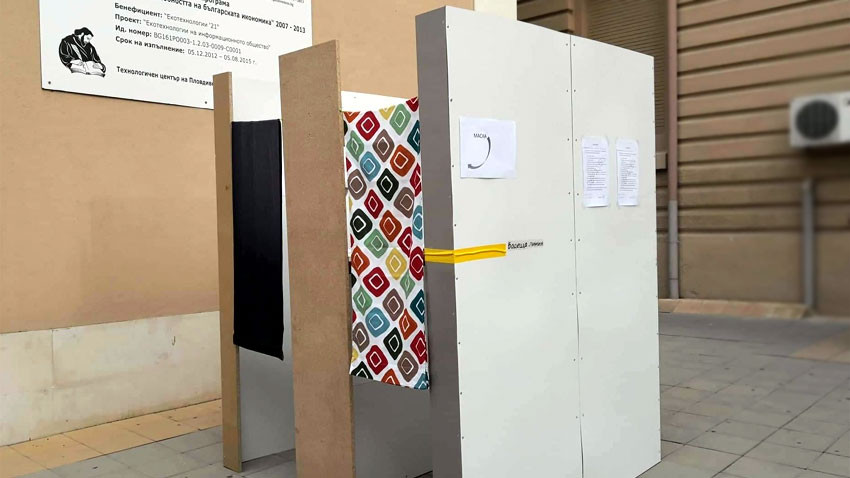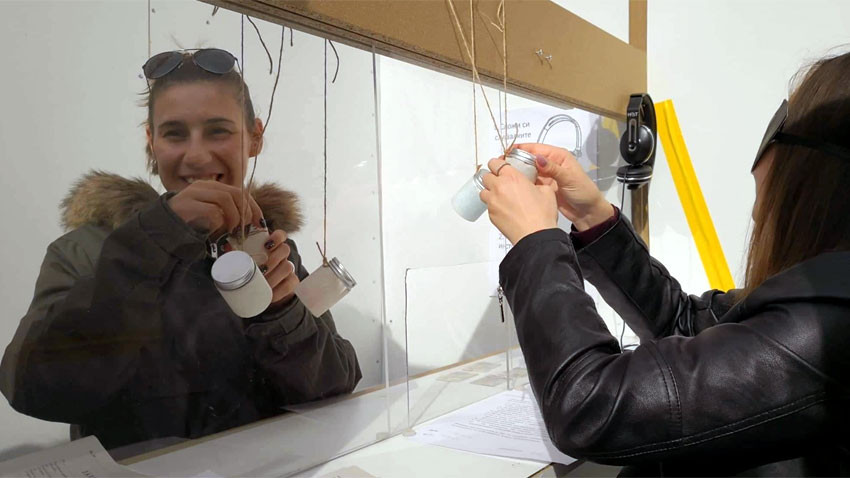An unusual exhibition facilitates communication between people who share common environment through impacting on their senses. It helps people overcome the differences, feel close and explore their city together.
The city is not only a combination of buildings, streets and sidewalks, but also a kind of a repository of the experience of its residents. That is why the research approach towards the city is based on the senses and the communication and the connections between the citizens. The scientists from Ethology Department with the Plovdiv University Paisius of Hilendar chose that methodology as well, in order to explore areas of sensitivity in the communication between the people with disabilities and the institutions. They presented their project Sensory Ethnography of the City at an international conference.
Sensory ethnography is a scientific method based on a field work-one has to go to a certain place and observe the communication between people and their cultural models, Associate Professor Meglena Zlatkova told Radio Bulgaria. In this project we do our fieldworks in the city and emphasized on the variety of sensory perceptions of the city that reveals the invisible links connecting the urban residents, because all of us have senses- we feel, see, hear, smell and touch our city.

The scientists chose two social institutions for their field studies. They saw how people with different sensory impairments find themselves in situations of being unable to exercise their civil rights. If for instance visually-impaired persons must fill in some documents they have to trust unknown people and give them their ID card, because the officials are not allowed to provide assistance. However, the office environment can change with some simple measures- it is enough to place relief bands and introduce sound instructions. This is only one of the examples given at the discussion Institutions in “Dialogue” with Citizens with Disabilities.
We used quotation mark around the word dialogue, because we saw the difficulties and the impediments stemming from the citizens’ different perception in their communication with the institutions, Associate Professor Meglena Zlatkova went on to say. The social workers also experience difficulties in their communication with these people, because they did not go under a special training to work with people with disabilities. These people shared many of their problems with us when we did our field works, including problems related to state policies. Unfortunately, we cannot offer solution to them, but we can change the small things and show respect to everyone, so people do not feel discriminated just because they are disabled.

This is the message of the interactive exhibition which opened within the frameworks of the conference- we can understand others and share our common world together only if we walk in their shoes.
The exhibition allows visitors to put themselves in the shoes of people with disabilities or social workers, PhD student Maria Slavcheva says. We provided audio instructions and a set of different smells typical of the reception halls of the institutions. Thus, people can realize the difficulties the people with disabilities and the social workers face. For instance, if visitors want to feel the difficulties of a person with visual impairments they have to fill in a document with eye patches. Following the audio instructions they must pass the test using a template that facilitates the work of the visually-impaired people. We will provide our appliances to various social institutions, including the National Rehabilitation Center for the Blind.
English version: Kostadin Atanasov
Photos: aceamediator.com and private libraryPeople are increasingly freeing up space for technology that they manage and keep under control. Artificial intelligence is quickly settling into this shared space. AI has been entering classrooms in recent years to bring the..
Today, 2 April, on Autism Awareness Day, the Burgas Bridge will be illuminated in blue as a sign of empathy, the Municipality of Burgas announced. The day was established in 2007 by the UN General Assembly to ensure that every society creates..
April 1 was declared International Bird Day in 1906, under the International Convention for the Protection of Birds. The date symbolizes mankind's responsibility for the conservation and preservation of wildlife. Today, 119 years after its..
Today, 2 April, on Autism Awareness Day, the Burgas Bridge will be illuminated in blue as a sign of empathy, the Municipality of Burgas announced...
People are increasingly freeing up space for technology that they manage and keep under control. Artificial intelligence is quickly..

+359 2 9336 661
